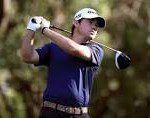In Part 1, we saw that Lee Strobel begins his mega-selling book, The Case for Christ, by relating that he was an atheist who said (p. 13), “As for Jesus, didn’t you know that he didn’t claim to be God?… that thought never occurred to him!… the divinity of Jesus was nothing more than the fanciful invention of superstitious people. Or so I thought.”
Strobel thus sets forth this characterization of Jesus—whether or not he claimed to be God—as though it is to be the primary thrust of his book. And it is. His final statement above suggests that he will show readers that he himself came to believe that those Christians were right—that Jesus did claim to be God. For, two pages later, Strobel continues this notion by asking concerning Jesus, “But who was he really? Who did he claim to be?” So, this issue—who Jesus claimed to be—takes precedence over all others in Strobel’s book. Other issues in the book are whether or not the New Testament gospels are historically reliable, Jesus did miracles, and he was raised from the dead.
After that introduction, each chapter in Strobel’s book is a report about an interview that he had with some expert, usually a Bible scholar. This remainder of the book is divided into three parts: (1) “Examining the Record,” which is an attempt to establish the historical reliability of mostly the New Testament gospels; (2) “Analyzing Jesus,” which seeks to answer the original question above, about who Jesus was and who he claimed to be; and (3) “Researching the Resurrection,” which explores the evidence for, or supposedly against, Jesus’ resurrection.
The first interviewee is Dr. Craig Blomberg, author of The Historical Reliability of the Gospels and other similar works. In fact, much of the first half of Strobel’s book is about trying to prove the historical reliability of the four New Testament gospels. Strobel eventually quotes Blomberg as saying of the Fourth Gospel (p. 29), “John makes very explicit claims of Jesus being God.”
When it comes to trying to prove or disprove from the Bible that Jesus is God, or that he claimed to be God, the battleground is mostly the Gospel of John. I think much of this gospel has been misunderstood. It’s mostly due to Jesus speaking metaphorically while his listeners, and later readers, wrongly think he meant it literally. That is why church father John Chrysostom rightly called the Gospel of John “the spiritual gospel.”
So, I think it is a mistake to interpret certain sayings of the Johannine Jesus as claims to being God. However, much of the critical Johannine material necessarily requires meticulous examination. The biggest weakness of The Case for Christ is that Strobel often asserts, and some interviewees do as well, that Jesus claimed to be God while never supporting this assertion from any of the New Testament gospel sayings of Jesus. This is the same colossal error C. S. Lewis makes in his classic book Mere Christianity. Both books are apologetical—trying to defend or prove Christian beliefs.
Strobel also quotes Blomberg as saying (p. 30), “Jesus claims to forgive sins in the synoptics, and that’s something only God can do.” I think that is incorrect. Blomberg has in mind Jesus’ healing of the paralytic and his saying to him, “Son, your sins are forgiven” (Mark 2.5). Scribes were present who thought Jesus was blaspheming. They thought, as Blomberg and many Christians have, “Who can forgive sins but God alone?” (v. 7). Jesus then said to them, “the Son of Man has authority on earth to forgive sins” (v. 10), and he healed the man. Jesus did not possess this authority due to his own intrinsic nature, as if he was God. Rather, he was given this authority by God, showing that he was not God. He indicated as much when he healed another paralytic.
One time Jesus healed a paralytic on the sabbath (John 5.1-15). Jews had laws against that. The Johannine author further relates, “Therefore the Jews started persecuting Jesus, because he was doing such things on the sabbath. But Jesus answered them, ‘My Father is still working, and I also am working.’ For this reason the Jews were seeking all the more to kill him, because he was not only breaking the sabbath, but was also calling God his own Father, thereby making himself equal to God” (vv. 16-18).
Many Christians have misunderstood this text. They have thought it is the author’s assessment that Jesus was “making himself equal to God.” Since they have believed that the author reports this as true, Jesus must have made himself equal to God. Quite the contrary, the author meant this was the Jews’ assessment, not his own. Why did these Jews think that? It was for two reasons: Jesus called God his Father and he healed on the sabbath. Christians seem to overlook that they call God their Father, yet they don’t think that makes themselves equal to God. Plus, Christians don’t think Jesus broke the sabbath. These two reasons clearly require that it was these Jews who thought Jesus was making himself equal to God, not what the author thought.
The author next quotes Jesus, in John 5.19-47, in what is a rebuttal of this Jewish allegation. Twice Jesus says of himself, “the Son/I can do nothing on his/my own” (vv. 19, 30). Jesus means that he cannot do any miracles apart from God doing it in him. He also says of himself that God “has given him authority to execute judgment, because he is the Son of Man” (v. 27). So, Jesus here explains that God has given him the authority to forgive or not forgive sins. This affirms what I said above about Jesus healing and forgiving the paralytic, that all of it is God-given and therefore does not attest that Jesus is God.
In this chapter, Strobel also mentions another Bible scholar he will soon interview. He is William Lane Craig, the most prominent Christian apologist on television in recent years. Strobel quotes Craig as saying (p. 30), “The Son of Man was a divine figure in the Old Testament book of Daniel.” Craig then adds concerning Jesus’ constant self-identification as the Son of Man, “the claim to be the Son of Man would be in effect a claim to divinity.” My-oh-my how Christian theologians have changed on this one. All church fathers believed “one like a son of man” in Daniel 7.13 referred only to Jesus’ humanity, whereas so many scholars now think it refers to someone who is divine, and many of these scholars do not think it refers to Jesus. My take on this is that Daniel 7.13 refers to Jesus, but it does not indicate he is divine. About the only thing these scholars say to prove he is divine is that the text says he is “coming with the clouds of heaven.” Since God is described this way in the Old Testament, they think this figure must be divine. But they wrongly presume that cloud-riding is a prerogative that belongs only to God. Thus, they do like Jews did in Mark 2, wrongly saying that forgiving sins is only what God does.
Although The Case for Christ argues that Jesus arose from the dead, it is not the book’s primary thrust. Rather, this argument is used to try to prove that Jesus is God. Strobel quotes Blomberg citing the Apostle Paul’s definition of the gospel in 1 Corinthians 15.3-5 (p. 35). This text says Jesus “was buried” and “was raised on the third day.” Blomberg rightly claims Paul here merely uses a piece of fixed oral tradition that dates no later than two years after Jesus’ resurrection. Strobel then interjects, “I couldn’t deny the importance of that evidence. It certainly seemed to take the wind out of the charge that the Resurrection [Jesus’ resurrection]—which is cited by Christians as the crowning confirmation of Jesus’ divinity—was merely a mythological concept.” So, Strobel here says Christians believe Jesus’ resurrection confirms he is God. Strobel ends this chapter by saying (p. 36), “as a skeptic, that was one of my biggest objections to Christianity.”
That is shallow thinking. Faithful Jews and Christians have believed that at the end of the age, God will raise the faithful dead to eternal life, and they have not believed that will indicate that they are Gods/gods. Thus, why should we think that Jesus’ resurrection indicates he was God?
Strobel interviews Dr. Greg Boyd mostly about his differences with the historical-critical Jesus Seminar. This group of approximately 200 scholars gained fame during the 1990s mostly with its book, The Five Gospels (which includes the non-canonical Gospel of Thomas), which grades the likelihood of the authenticity of every saying of Jesus. Boyd told Strobel (p. 119), “Jesus’ biggest distinctive is how he did miracles on his own authority.” That clearly is incorrect, as we saw above in John 5.19, 27, and 30. So, I am surprised that a scholar of Boyd’s stature would commit such an error. However, it was twenty years ago, so that perhaps Boyd would not say that now. Jesus spoke of his God-derived authority at other times. For instance, the risen Jesus said at the beginning of his well-known and so-called Great Commission, “All authority in heaven and on earth has been given to me” (Matt. 28.19; cf. 11.27).
Strobel begins “Part 2: Analyzing Jesus,” with a highlight chapter entitled “The Identity Evidence: Was Jesus Really Convinced That He Was the Son of God?” This is another example in this book of Strobel presuming Jesus is God because he is the Son of God. This chapter relates an interview Strobel had with my friend Dr. Ben Witherinton III. (See my comments on this interview in my previous review of this book.)
I have a dozen books in my library authored by Dr. D. A. Carson, whom I have met. In the chapter interview of him, Strobel expresses his view (p. 156), “Now, Jesus claims to be God.” Throughout this book, we aren’t sure when Strobel changes to thinking this. I said above that he begins this book by saying he was an atheist who thought Jesus “never claimed to be God.” Now Strobel writes (p. 157), “My initial question centered on why Carson thinks Jesus is God in the first place. ‘What did he say or do,’ I asked, ‘that convinces you that he is divine?’”
Don Carson answers that Jesus’ “miracles” are “not decisive. Of course, the Resurrection was the ultimate vindication of his identity.” What identity? The context is Strobel asking Carson why he thought Jesus was divine. Carson then adds, “But of the many things he did, one of the most striking to me is his forgiving sin.” Carson then quotes (p. 158) the scribes’ saying to Jesus in Mark 2.7, “Who can forgive sins but God alone?” Carson then indicates he agrees with this. But I showed above that Jesus refuted this notion in John 5.27, just as he indicated in Mark 2.10, saying the authority to judge, thus forgive or not, was given to him as the Son of Man.
Strobel next relates (p. 158, “I hit Carson in rapid-fire succession with some of the biggest obstacles to Jesus’ claim of deity.” So, Strobel began this chapter by saying he wanted to know “why Carson thinks Jesus is God,” and now this. It is obvious that Strobel doesn’t distinguish well the two ideas of who Jesus claims to be and who Bible writers otherwise say Jesus is.
Carson tells of the hypostatic union without identifying it as such. It means Jesus had a human nature and a divine nature. Carson says (p. 159), “the great theologian Benjamin Warfield worked through the gospels and ascribed various bits either to Christ’s humanity or to his deity.” That is what I was taught as a Trinitarian. Strobel then asks Carson, “wouldn’t you end up with a schizophrenic Jesus?” I think the answer is “yes.” That’s what I concluded when I had my eureka moment reading Matt. 24.36 that led to my abandoning belief that Jesus is God.
Carson answers by citing (pp. 159-60) from Paul’s letters in Philippians 2.6-7 about kenosis, meaning Jesus’ “self-emptying.” He gives some interpretations of it and admits his uncertainty.
Strobel then says by now in his Carson interview (pp. 160-61), “I flipped to the next page of my notes and began another line of questioning about some specific biblical passages that seemed to directly contradict Jesus’ claim to being God. Part of the sketch that Jesus must match is that God is an uncreated being who has existed from eternity past… But, I said to Carson, there are some verses that seem to strongly suggest that Jesus was a created being. ‘For instance,’ I said, ‘John 3:16 calls Jesus the “begotten” Son of God, and Colossians 1:15 says he was the “firstborn over all creation.” Don’t they clearly imply that Jesus was a created being.’”
Carson well explains that “the expression ‘firstborn’ is slightly misleading…. ‘supreme heir’ would be more appropriate.” He then quotes (p. 162) Paul saying in Colossians 2.9, “For in Christ all the fullness of Deity lives in bodily form,” though Paul also says that in 1.19. Carson then says this indicates Jesus is eternal regarding both past and future. This verifies what he said earlier about Jesus being “the eternal Son.” On the contrary, Luke relates that the angel Gabriel indicates Jesus’ Sonship begins at his physical birth (Luke 1.35).
Carson seems to have been Strobel’s longest interview (p. 169). They discussed how Jesus has the same divine attributes that God does, such as omniscience, omnipresence, omnipotence, eternality, and immutability. Strobel does not relate discussion about these but merely attaches a Bible verse that he alleges supports each one. I won’t take time to address this except for one: omniscience. I said above that my eureka moment that led to my change in Christology was Jesus saying concerning his yet future return, “But about that day and/or hour no one knows, neither the angels of/in heaven, nor the Son, but only the Father” (Matt. 24.36/Mark 13.32). Since Jesus didn’t know this, and only the Father did, this shows that Jesus was not God. Applying the hypostatic union to this text, by saying Jesus said that in his human nature, yet he really knew in his divine nature, I thought that makes Jesus a schizophrenic person. Worse yet, it makes him look like a liar since he said he didn’t know, yet he really did.
The remainder of Strobel’s book, Part 3, is about verifying the historical reality of Jesus’ resurrection. I believe Jesus’ resurrection is the foundation of Christianity, and without it there never would have been any Christianity. That is what caused Jesus’ early disciples to eventually “turn the world upside down.” The Jesus Movement, as scholars call it, started small; but from the early fourth century to the present time, Christianity has been the world’s largest religion. Yet Strobel muddies the waters about Jesus’ resurrection by repeatedly citing it as evidence that Jesus is God.
For example, Strobel begins chapter 12 by saying (pp. 205-06), “The empty tomb, as an enduring symbol of the Resurrection, is the ultimate representation of Jesus’ claim to being God…. The Resurrection is the supreme vindication of Jesus’ divine identity and his inspired teaching.” This is quite wrong. The Bible says all genuine people of God will be raised from the dead with immortal bodies like Jesus now has, and that certainly will not make us Gods/gods. Therefore, such assertions by Strobel and others must be assessed as shallow thinking.
In the concluding chapter, Strobel pulls together highlights of his interviews. He says (p. 261) Witherington said, ‘Did Jesus believe he was the Son of God, the anointed one of God? The answer is yes…. Did he believe that anybody less than God could save the world? No, I don’t believe he did.” Strobel summarized what Dr. Gary Collins said as follows (pp. 261-62): “Jesus backed up his claim to being God through miraculous feats of healing,… and with his own resurrection, which was the final authentication of his identity.”
In The Case for Christ, Strobel and some of his interviewees state, or seem to mean, that Jesus is God because he is the Son of God:
- Yamauchi—“Paul’s letters are an important witness to the deity of Christ—he calls Jesus ‘the Son of God’ and ‘the image of God” (p. 88). “For me, the historical evidence [that corroborates the NT gospels] has reinforced my commitment to Jesus Christ as the Son of God.”
- Boyd characterizes Peter’s first sermon, in Acts 2, as saying (p. 125), “God has raised Jesus from the dead. Therefore we proclaim him to be the Son of God.” Actually, Peter did not therein identify Jesus as “the Son of God,” though he certainly and rightly believed that (cf. Matt. 16.16). Boyd appears to mean that Jesus is God because he is the Son of God.
- Witherington asks (pp. 140-41), “Did Jesus believe he was the Son of God, the anointed one of God? The answer is yes…. Did he believe that anybody less than God could save the world? No, I don’t believe he did…. How was God going to be the Savior of the human race? He had to come as a human being to accomplish that. And Jesus believed he was the one to do it.” Witherington obviously believes, here, that Jesus is God since he is the Son of God.
- Strobel says (p. 264), “Jesus is the unique Son of God,” and he equates this identification with “the deification of Jesus.”
For me, one of the weaknesses of Strobel’s The Case for Christ is that it is about Christian apologetics, thus mostly an investigation of many Bible texts. Yet the book has no Scripture Index. This omission makes it more difficult to make a proper assessment of The Case for Christ.
(See Part 1 of this review, posted on January 27, 2017, by clicking here.)
(To see a titled list of over seventy, two-three page posts (easily accessible) about the Bible not saying Jesus is God, click here.)

















